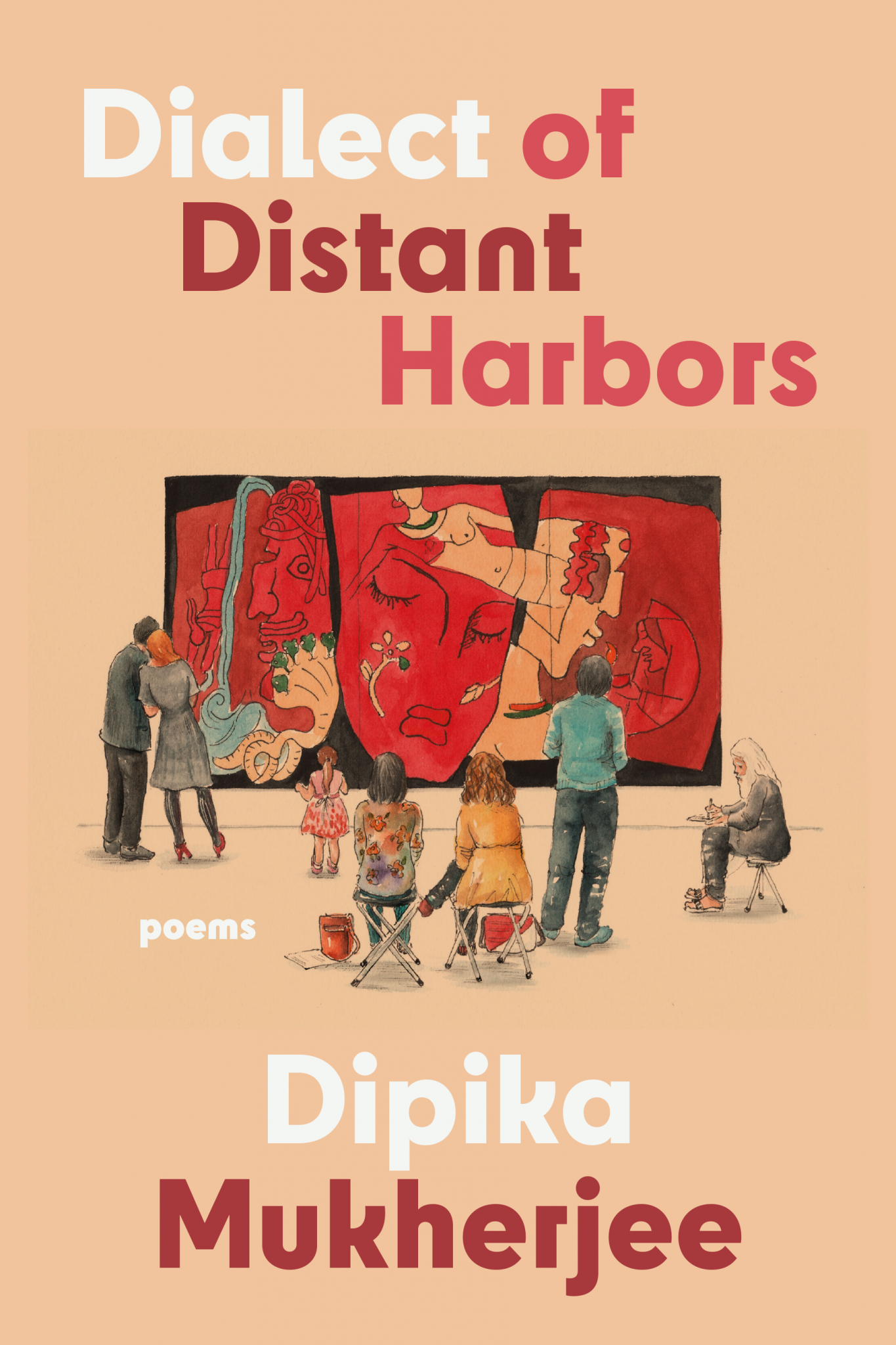I will not be born for another nine years.It is my father’s first foreign posting; my mother is his bride.She leaves a sprawling home in Calcutta and fifteen play-mates to take his hand, crossing black seas to go where hewill go. In a house as vast as her natal home there is the twoof them, a maid, a gardener’s family . . . only silence speaksher language through cavernous days.He has not learnt to woo her. They both married when told.But one day he brings home a sari from the Parsi merchant.Look, he says, unfurling a shimmer of cloth on their bed. Therose color reminded me of you.He is color-blind.She sees a snot-green of silk—it reminds her of mold ondamp monsoon drains.She picks up the sari and drapes the pallu coyly over a shoul-der. She looks at the ground and says, This is the most beautifulthing I have ever owned.
Bangkok, 1956
Feature Date
- December 17, 2023
Series
Selected By
Share This Poem
Print This Poem
“Bangkok, 1956” from DIALECT OF DISTANT HARBORS: by Dipika Mukherjee.
Published by CavanKerry Press on October 2022.
Copyright © 2022 by Dipika Mukherjee.
All rights reserved.
Reproduced by Poetry Daily with permission.

Dipika Mukherjee’s newest poetry collection, Dialect of Distant Harbors, was published by CavanKerry Press in October 2022 and won the Quill and Ink Award and is shortlisted for a CHIRBy Award. She is the author of The Palimpsest of Exile, and The Third Glass of Wine. Her poetry appears in publications around the world, including RHINO, PostColonial Text, World Literature Today, Asia Literary Review, Del Sol Review and Chicago Quarterly Review. She is the recipient of a 2022 Esteemed Artist Award (DCASE) from the City of Chicago and teaches at StoryStudio Chicago and the Graham School at University of Chicago. Read more at: Dipikamukherjee.com

Fort Lee, New Jersey
The University of Chicago Press
Whether writing ghazals or haibuns or unpacking the brutality of recent historical events, Mukherjee’s Dialect of Distant Harbor is a hybridic journey of storytelling, translations, reportage, lyrical unfoldings, and acts of witness. Language and lineage take center stage as the palimpsest of memory, history, and utterance is explored. Though steeped in elegies for the dead, Mukherjee’s book is also praise-filled and empowering as she guides us through a detailed terrain of muslin petticoats, Weird Al, Calcutta heat, and “black / diamonds under bare feet,” as well as the rich odors of smeared chutney, woodsmoke, and ink. By the end, I feel Mukherjee’s “benediction / in the prickle of my scalp.”
—Simone Muench, author of Orange Crush and Wolf Centos
Among contemporary poetry exploring the complicated subject of “where I’m from,” Dipika Mukherjee’s work stands out in these frank, fast-moving, and musical poems. She takes us into worlds of food, fragrance, and “goddesses,” as well as “women / who bury infant girls in the ground, into / milk vats to drink until they drown.” Her poems reside in Chicago, Calcutta, Delhi, and Door County, Wisconsin, as intimate as they are political. A woman relaxes on a downtown sidewalk enjoying an impromptu concert by a street musician, and a mother arriving at Chicago’s O’Hare Airport is panicked when her nine-year-old son is led away for an inspection of his “foreign passport.” A poem takes its epigraph from the widely publicized gang-rape and murder of a young woman on a bus in Delhi in imagining a communal shawl “stained” by physical evidence and memory worn by all women who experience sexual violence. As a poet with a doctorate in sociolinguistics, Mukherjee enjoys and honors languages, occasionally mixing in Bengali, her “magic chalice.” She has a well-tuned ear and feel for form, knowing when to write in tight, alliterative lines, when to swing across the page, and when to write in the prose of a haibun. Reading this book is a sensory pleasure.
—Debra Bruce, author of Survivors’ Picnic, What Wind Will Do, and Sudden Hunger, winner of the Carl Sandburg Award
Mukherjee’s latest poetry collection is penetrating. Dialect of Distant Harbors is an intercontinental and reflective sheaf of poems on aging, illness, faith, and family written in a keen diasporic music. Mukherjee is skilled in various poetic forms. Her vision is clear and her sensory awareness of the stuff of human experience is stunning. As she says, “sometimes the third eye is a camera, / sometimes a fist to the heart.”
—Maya Marshall, author of All the Blood Involved in Love
In Dialect of Distant Harbors, Dipika Mukherjee’s masterful lyricism and storytelling complicate the immigrant narrative: “hundred is the sum of me . . . I have a hundred ways to be.” From her native Delhi to her adoptive Chicago, to New Zealand, Kuala Lumpur, and beyond, her poetic kaleidoscope refracts the self like “the light / of many Buddhas carved into stone, holy and potent.” Lush, fierce, and tender, these poems sing of family and childhood, love and loss, while grappling with cultural identity, migration, womanhood, and race. If, as Czeslaw Milosz says, language is the only homeland, then to read this book is to rediscover that beloved yet elusive soil, and “to live again / in that house on stilts, taste / the sharpness of anchovies / dried on bamboo vines.”
—Angela Narciso Torres, author of What Happens Is Neither, Blood Orange, winner of the 2013 Willow Books Literature Award for Poetry, and To the Bone
Poetry Daily Depends on You
With your support, we make reading the best contemporary poetry a treasured daily experience. Consider a contribution today.



